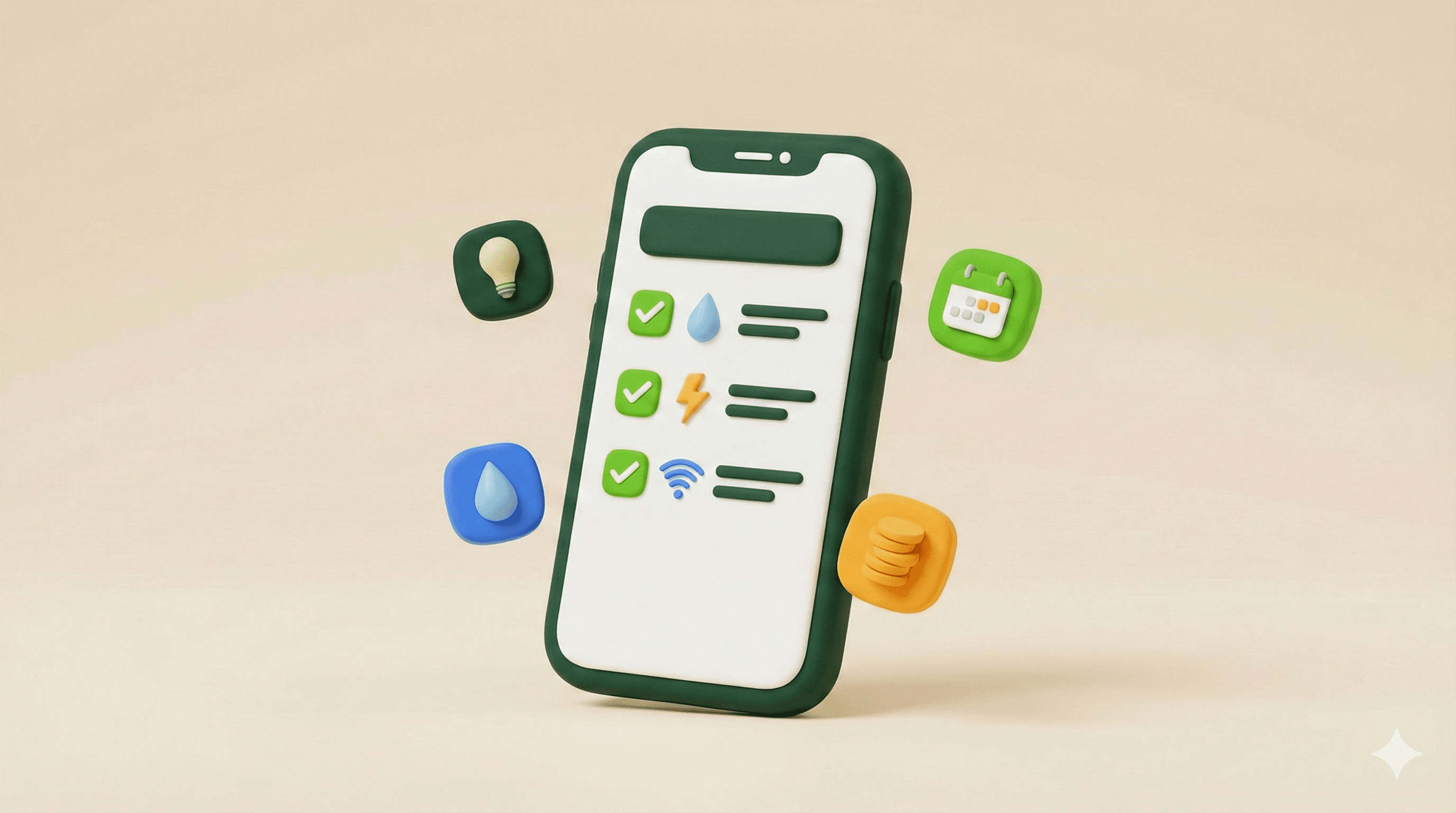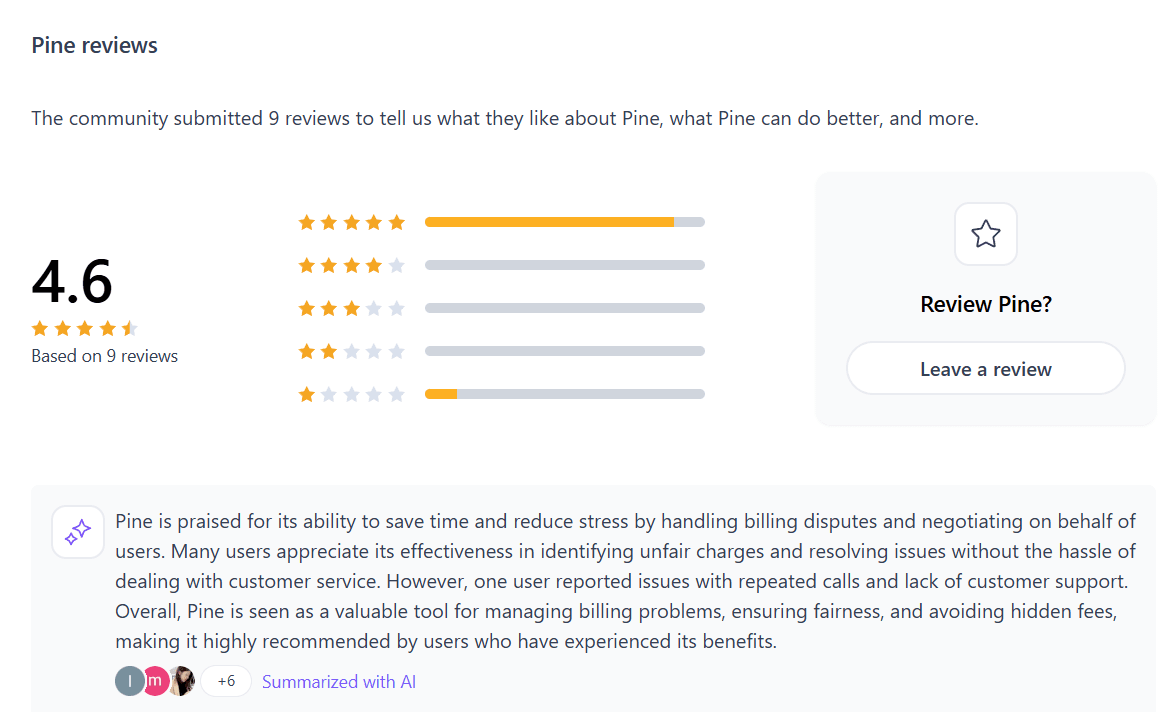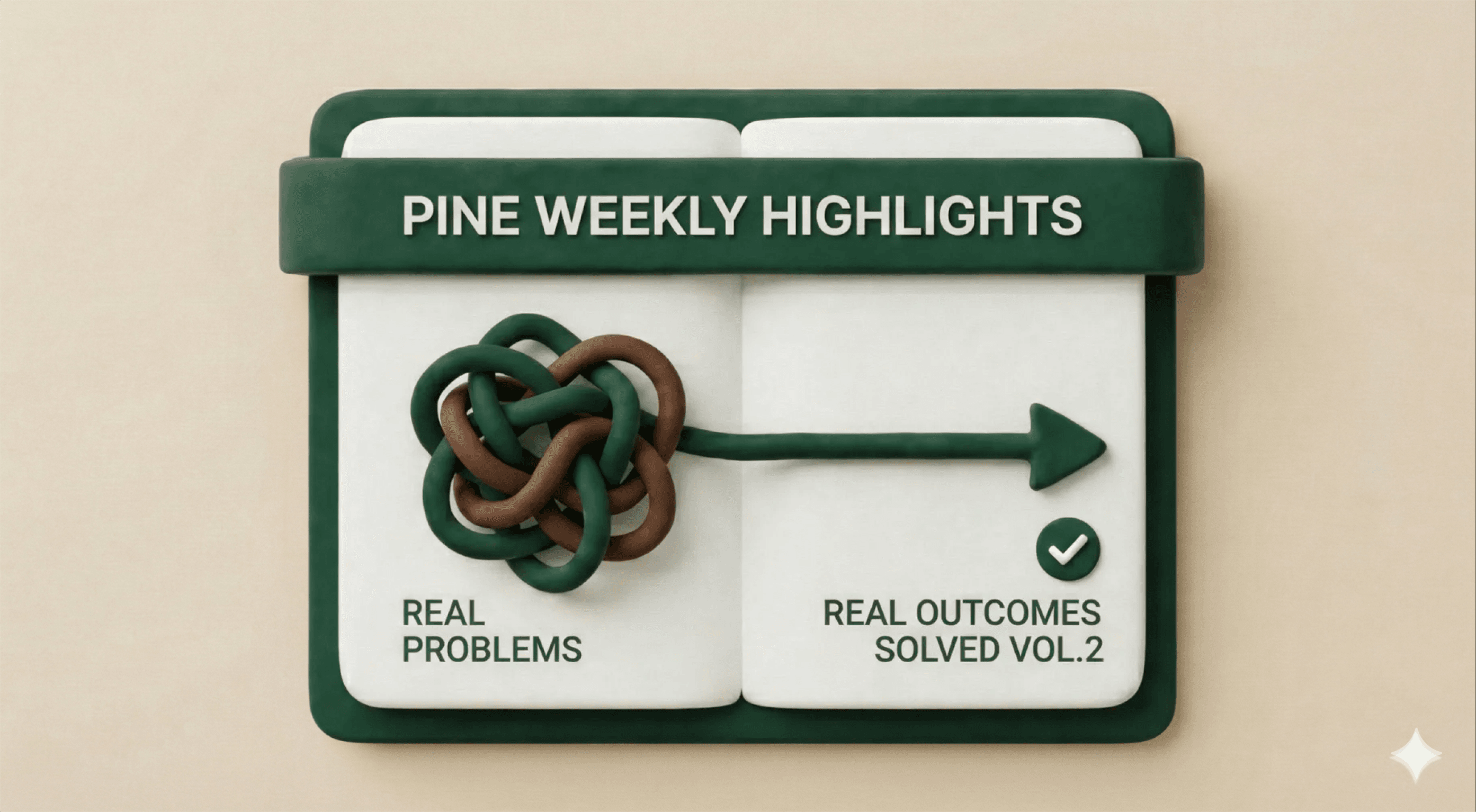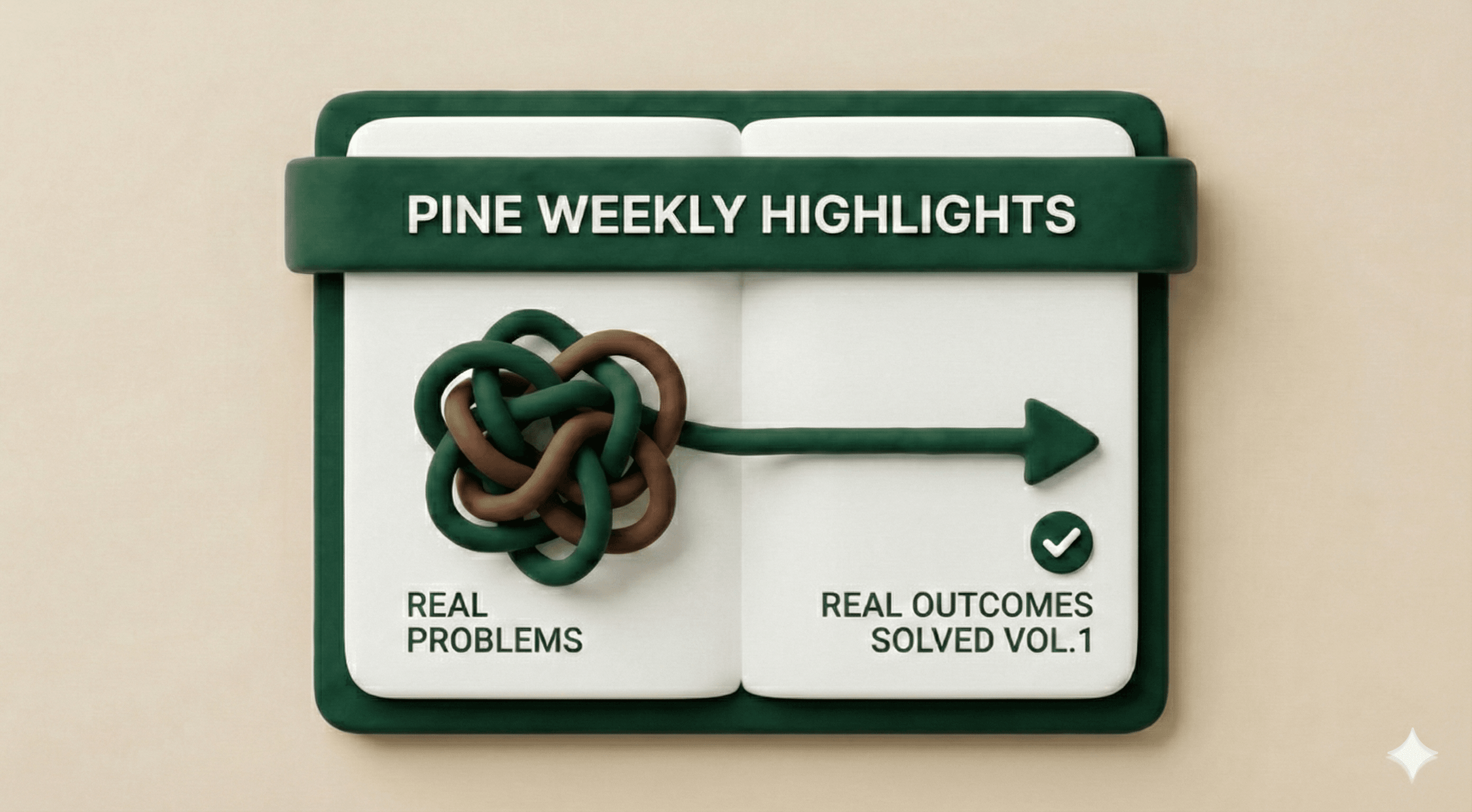Top 10 Bill Management Apps in the US (2026)
Look, let’s be real. Managing bills is a total nightmare, and the least fun thing to do (well, for most). It feels like every company on earth has its hand in your pocket through some sneaky subscription you forgot about. One minute you’re signing up for a free trial, and the next, you’re paying $14.99 a month for a service you used once, sometime last year. It’s exhausting, and it’s not just you. About 86% of consumers are worried about the impact of inflation on their ability to pay bills, according to a 2023 doxo’s consumer research report. And that was two years ago - I'll bet we are up to 99%.
This mess is getting worse with things like "shrinkflation," where you pay the same for less stuff or you pay more for the same stuff. Honestly, it feels like we're being squeezed from all sides. The whole #loudbudgeting trend on TikTok didn't just appear out of nowhere; it's a direct response to this financial stress. Thankfully, bill management apps are tools we can use to fight back or at least gain back our sanity. They help you find those money-sucking subscriptions and get a grip on your cash flow, and sometimes even refunds or bill lowering.
Quick Comparison: Top 10 Bill Management Apps (2025)
| App Name | Category | Key Features | Pricing | Platforms |
|---|---|---|---|---|
| 19Pine.AI | AI Bill Negotiator | AI-powered negotiation, one-click cancellation, finds forgotten subscriptions, overpriced recurring bills and refunds you deserve. | Pay As You Go | iOS, Web |
| Quicken Simplifi | All-In-One Budget Tracker | Custom spending plans, tracks recurring bills, savings goals. | $3.99/month (billed annually). | iOS, Android, Web |
| PocketGuard | Spending Overview | "In My Pocket" feature, tracks bills, negotiates some bills. | Free version; Plus is $12.99/month. | iOS, Android, Web |
| EveryDollar | Zero-Based Budgeting | Manual transaction tracking, create monthly budgets, due date reminders. | Free version; Premium is $17.99/month. | iOS, Android, Web |
| You Need a Budget (YNAB) | Proactive Budgeting | Four-rule method, set goals, manage shared finances. | $14.99/month or $99.99/year. | iOS, Android, Web |
| Honeydue | Budgeting for Couples | Shared accounts, bill reminders, chat feature. | Free. | iOS, Android |
| TimelyBills | Bill Reminders & Payments | Due date alerts, payment history, expense tracking. | Free; Pro plan with more features. | Android |
| Bills Manager | Simple Manual Tracker | Calendar view of bills, custom reminders, simple UI. | Free with ads; Pro version available. | iOS, Android |
| TFCU Mobile App – Bill Pay | Integrated Bank Bill Pay | Schedule payments, receive eBills, manage payees from your bank. | Free (with credit union membership). | iOS, Android |
| Spendee | Shared Finances & Travel | Shared wallets for family/friends, multi-currency support, bill tracking. | Free basic plan; Premium from $2.99/month. | iOS, Android, Web |
Detailed Bill Management App Breakdowns
Here’s a breakdown of each of these apps that help with bill management.
Pine AI
When it launched in 2024, Pine AI jumped into the scene to tackle one thing: using AI to stop companies from overcharging you for, well, everything. It's designed for people who are tired of wasting time on hold or digging through menus to cancel a service, lower their bill or get a refund. Figuring out how to cancel some of these streaming services can take hours. Pine AI's focus on automation has been a huge topic of conversation on finance forums, with users talking about its success in getting refunds for service outages they never even noticed, even snagging the top spot on Product Hunt as the #1 Product of the Day.
- Best for: Automatically finding and canceling things you forgot you were paying for, sitting on hold with customer service and getting you that refund.
- Key Features:
- AI-powered bill negotiation for services like internet and cell phone plans.
- One-click cancellation service for hundreds of subscriptions.
- Scans your accounts to find hidden and recurring charges.
- Pros:
- It does the most annoying work (calling companies) for you. Yes, it calls for you.
- Finds savings you would likely never find on your own.
- The "fire and forget" nature is great for busy people.
- Cons:
- The success-based fee means they take a cut of the money they save you. Is that really a con? It's still money you didn't have before.
- Connecting financial accounts can feel sketchy to some, despite the security.
- AI negotiation isn't a silver bullet; it doesn't work every single time.
- They are relatively new and working to build their reputation - but that also means they are trying constantly to improve.
- Pricing: Free to use; the service takes a cut of any savings they secure for you on annual bills. Source: 19Pine.AI as of November, 2024
- Who it’s for: The hands-off person who hates making phone calls and just wants the problem solved.
- Reviews: Recent reviews from Product Hunt are positive, though the amount of reviews are small for now, but we're off to a strong start.
Highlights from reviewers mention it's time saving ability and helping to reduce stress for users by handling billing disputes and negotiating on behalf of users.
Quicken Simplifi
Simplifi, which is part of the long-standing Quicken family (around since the 80s!), was launched in 2020 as a more modern, mobile-friendly take on personal finance. It’s not at all about aggressive bill negotiation but more about giving you a crystal-clear picture of where your money is going so you can manage bills yourself before they become a problem. When testing the app, the biggest strength is flagging upcoming recurring payments, so you're never surprised by that annual charge. It’s consistently ranked among the best bill management apps by outlets like the New York Times' Wirecutter for its clean interface. It's built for someone who wants to be more hands-on but doesn't want to get lost in a complicated spreadsheet.
- Best for: Getting a simple, real-time view of your money.
- Key Features:
- Connects all your financial accounts for a complete overview.
- Tracks recurring bills and subscriptions automatically.
- Lets you create custom spending plans and watchlists for certain categories.
- Pros:
- Super easy to set up and use.
- The projected cash flow feature is great for planning.
- No ads, which is a huge plus.
- Cons:
- Lacks the deep, manual budgeting features of YNAB.
- Some users report syncing issues with smaller banks or credit unions.
- It can't cancel subscriptions or negotiate bills for you. It just shows them to you.
- Pricing: $3.99 per month (when billed annually at $47.88). Source: Quicken Simplifi as of November, 2025 - sometimes less on promotion
- Who it’s for: Someone who simply wants to track their spending in a simple way. Easy peasy.
- Reviews: Generally positive reviews found from PC Mag (2025) and Business Insider (2025), both sites praising the app for it's features.
PocketGuard
PocketGuard popped up in 2015 with a simple mission: to show you how much money is "in your pocket" after accounting for bills, goals, and recurring expenses - basically so you know how much extra you can spend. It’s a great subscription tracker app because it automatically categorizes your spending and pulls all your upcoming bills into one neat list. Honestly, just seeing the "In My Pocket" number can be a brutal reality check. The app tries to upsell you on its bill negotiation feature, which is a nice add-on but is basically a partnership with other services. Based on current trends, it’s a solid middle-ground app that balances automation with user control, which is why it often gets mentioned in roundups of top budgeting tools.
- Best for: Answering the simple question: "How much can I spend today?"
- Key Features:
- The "In My Pocket" feature calculates your disposable income.
- Finds and tracks all your recurring bills to prevent overdrafts.
- Offers a bill negotiation service through a third-party partner, for a fee.
- Pros:
- The main feature is incredibly simple and effective.
- Helps you easily spot subscriptions you can cut, but you have to do the work.
- The interface is clean and not overwhelming.
- Cons:
- The free version is pretty limited.
- Bill negotiation isn't done in-house and costs extra.
- Transaction categorization can be wonky sometimes and needs manual fixing.
- Pricing: Free version available. PocketGuard Plus is $12.99/month or $79.99/year. Source: PocketGuard as of November, 2025
- Who it’s for: The visual learner who needs a daily spending limit to stay on track.
- Reviews: Well regarded as a top money management app, gaining positive reviews from PC Mag awarding it 4.0 / 5 stars (July, 2025) and on Trust Pilot a 4.3 Stars as of November, 2025.
EveryDollar
Created in 2015 by Dave Ramsey's company, EveryDollar is all about the zero-based budgeting method. The philosophy is simple: you give every single dollar a job before the month begins. This is a very manual, hands-on bill management app. It's not going to find your subscriptions for you; it's going to force you to confront them as you build your budget. I think its power is its weakness; it requires discipline. If you're struggling with debt after a major life event, this app's structured approach is a direct response to that kind of financial chaos. It forces you to look at every single bill, from your mortgage to that $5 coffee subscription, and ask, "Do I really need this?"
- Best for: Forcing you to be intentional with every dollar you spend, and you kind of have to be on the Dave Ramsey bandwagon.
- Key Features:
- Follows the zero-based budgeting system.
- Set due dates for bills and track when they're paid.
- Track progress on your "Baby Steps" (Dave Ramsey's financial plan).
- Pros:
- The free version is genuinely useful for manual budgeting.
- Psychologically powerful for changing spending habits - if you pay attention.
- Syncs with the whole Ramsey ecosystem if you're a follower.
- Cons:
- You have to pay for the premium version to connect your bank accounts.
- It's a lot of manual work. You have to be committed.
- The approach is very rigid and might not work for people with irregular incomes. It's Dave Ramsey's approach.
- Pricing: Free version for manual entry. Premium (with bank syncing) is $17.99/month or $79.99/year. Source: Nerd Wallet as of January, 2025
- Who it’s for: The Dave Ramsey follower or anyone who needs a strict, bootcamp-style budget overhaul.
- Reviews: Praised for its ease of use and customizable features, however as noted by review sites CNET (Jan, 2025), and Nerd Wallet (Jan, 2025), there are cool features on the paid plan, meaning you will have to spend money to get the most out of the app.
You Need a Budget (YNAB)
YNAB, founded way back in 2004, is more of a financial philosophy than just an app. It has a cult-like following for a reason. Its core mission is to get you to stop living paycheck-to-paycheck by making you budget with the money you already have, not the money you expect to get. This is the best bill management app for people who want to be planners, not just trackers. It forces you to create specific categories for your bills (e.g., "Netflix - $15.49," "Car Insurance - $80") and fund them ahead of time. The whole point of YNAB is to give every single dollar a job before the month even starts, which is a big mental shift from just looking back at what you already spent.
- Best for: Proactively planning for your bills instead of just reacting to them.
- Key Features:
- The "Four Rule" method: Give Every Dollar a Job, Embrace Your True Expenses, Roll With the Punches, and Age Your Money.
- Direct import from bank accounts.
- Powerful goal tracking for things like saving for a vacation or paying off debt.
- Pros:
- Incredibly effective for people who stick with it.
- Excellent educational resources (workshops, videos, articles).
- Flexible, lets you move money between categories easily.
- Cons:
- The learning curve is steep. Really steep.
- It's one of the more expensive budgeting apps.
- The "Age of Money" metric can be confusing at first.
- Pricing: $14.99 per month or $99.99 annually. Source: YNAB as of August, 2025
- Who it’s for: The detail-oriented person who wants to become the master of their financial universe and is willing to put in the work.
- Reviews: Strong reviews for the app, with folks noting its straight forward system and being reliable, with users on Trust Pilot giving it a 4.6 / 5 Stars (August, 2025), and 4.8 / 5 Stars (August, 2025) on the Apple iOS.
Honeydue
Launched in 2016, Honeydue was built to solve a huge problem: managing money with a partner. It’s a bill management app specifically designed for two people. It links both of your bank accounts, credit cards, and loans into one place so you can see the whole picture without having to share passwords or log into multiple banking apps. Honestly, it's a relationship saver. You can choose what to share with your partner, set reminders for who needs to pay which bill, and even use the chat feature to ask "Hey, did you pay the internet bill?" It looks like, based on current trends, apps for shared finances are becoming more popular as couples look for transparent ways to manage rising household costs together.
-
Best for: Couples who want to manage bills and budgets together.
-
Key Features:
- Tracks balances and transactions across all your combined accounts.
- Set monthly household spending limits.
- Bill reminders and in-app chat to coordinate payments.
-
Pros:
- It's free, which is amazing for what it does.
- Reduces a ton of friction and awkward money conversations, although, you should probably have these anyhow.
- You can customize how much financial information you share.
-
Cons:
- It’s really for couples, so it's useless for individuals, unless they have a partner they share finances with.
- Some users report that connecting to smaller credit unions can be buggy. Weirdly, this only worked on my iPhone not on an Android device for one of my accounts.
-
Pricing: Free, thought a tipping fee looks to be encouraged from the Apple App Store Source: Honeydue Apple App Store as of August, 2025
-
Who it’s for: Any couple, married or not, that is trying to combine finances and not argue about the electricity bill.
-
Reviews: Mixed reviews for the app, though according to some users the app is too simplistic and no desktop version according to Nerd Wallet (April, 2025), a fairly average score on the Google Play Store App, with 3.7 / 5 Stars (August, 2025).
TimelyBills
TimelyBills, which launched around 2017, is a straightforward bill organizer and reminder app. Its main purpose is to prevent you from getting hit with late fees. It's not a full-blown budgeting tool like YNAB, but it's a strong contender for being your bill management app, if your primary problem is just remembering when everything is due. It scans your SMS messages and emails for bills (with your permission, of course) and automatically creates a calendar of due dates. This is a huge benefit in an era where every service from your gym to your cloud storage sends bills through different channels. It’s simple. It works.
- Best for: Never forgetting a bill due date ever again.
- Key Features:
- Automatic bill discovery from text messages and Gmail.
- Intelligent reminders before the due date.
- Generates monthly spending reports based on your bill payments.
- Pros:
- The automatic bill detection is incredibly handy.
- Great for people who get overwhelmed by complex budget apps.
- Provides a clear, simple view of upcoming payments.
- Cons:
- It's currently only available on Android. Big downside.
- The interface feels a little dated compared to newer apps.
- Focuses almost entirely on bills, not overall financial health.
- Pricing: Free with basic features. Pro plans with more robust features are available. Source: TimelyBills August, 2025
- Who it’s for: The busy (and slightly forgetful) Android user who just needs a reliable bill reminder system.
- Reviews: Strong reviews on the Google App Store with 4.6 / 5 Stars from over 35,000 reviews (August, 2025), though on Trust Pilot (August, 2025) mixed reviews scoring 2.3 / 5 Stars - worth having a further look.
Bills Manager
This app by Jose Fabian Pena, does exactly what its name says. It's a no-frills, simple tool that has been around for several years, designed for people who want to manually track their upcoming bills. There's no bank connection, no AI, no fancy reports. You enter your bills, their due dates, and the amount, and the app reminds you. That's it. For some people, that’s all they need. In a world of overcomplicated tech, its simplicity is its main selling point. It’s the digital equivalent of a calendar with red circles on it, which is a method that has worked for generations for a reason.
- Best for: A simple, manual way to track bill due dates.
- Key Features:
- Calendar view of all your upcoming bills.
- Customizable reminders for payment dates.
- Mark bills as paid to keep track of your history.
- Pros:
- Extremely easy to use with no learning curve.
- No need to connect your bank accounts, which is a plus for security-conscious users.
- The free version is perfectly functional.
- Cons:
- It's 100% manual. If you forget to enter a bill, the app won't know about it.
- The free version has ads that can be annoying.
- Lacks any advanced features like spending analysis or subscription finding.
- Pricing: Free with ads. A one-time purchase for the Pro version removes ads and adds more features. Source: App Store listing as of August, 2025
- Who it’s for: The person who still uses a paper checkbook register and wants a digital version of their bill-paying sticky notes.
- Reviews: " Limited third party reviews about this app, however it's scored a 4.7 / 5 Stars on the App Store (August, 2025).
Transportation FCU Mobile App – Bill Pay
Okay, this one is different. It’s not a standalone app you can download unless you're a member of the Transportation Federal Credit Union. I’m including it as a stand-in for a category people often forget: the bill pay feature inside your own bank's app. Before you download anything else, you should check what your bank already offers. Most major banks and credit unions have built-in bill pay that lets you schedule payments, set up eBills, and manage everything from one place. It’s often the most secure way to do things since it’s already inside your trusted banking environment.
- Best for: Managing all your bills directly from your primary bank account.
- Key Features:
- Schedule one-time or recurring payments to thousands of companies.
- Receive electronic versions of your paper bills (eBills).
- View your payment history all in one place.
- Pros:
- It's free, no internet connection required to use the app
- Extremely secure since it's part of your bank's infrastructure.
- Payments are sent directly from your account, simplifying cash flow.
- Cons:
- Features vary wildly between banks. Some are amazing, some are ancient.
- It won't help you find hidden subscriptions.
- Lacks any of the budgeting or analysis features of dedicated apps.
- Pricing: Free with your bank or credit union account. Source: Transportation Federal Credit Union Website as of August, 2025
- Who it’s for: The security-first person who prefers to keep all their financial activity under one roof.
- Reviews: User reviews for bank apps are all over the place, but a common theme is convenience. "I love paying my mortgage, car payment, and credit card all from the same screen," is a sentiment you'll often see. A common complaint is, "The interface looks like it was designed in 2005."
Spendee
Spendee, which started up in 2013, is a visually-driven budgeting app that's great for people who share finances or travel a lot. Its main hook is the ability to create shared "wallets" for trips, household expenses, or projects, and it handles multiple currencies really well. In terms of bill management, it's solid. You can connect your bank account and it will schedule upcoming bill payments, helping you avoid late fees. Think of it as a more modern, colorful alternative to Quicken Simplifi, with a special focus on sharing. It’s one of the better apps that help with bill management for people with unconventional financial lives, like freelancers or frequent travelers.
- Best for: Shared finances and managing bills across different currencies.
- Key Features:
- Shared wallets for tracking expenses with family or friends.
- Smart bill tracker that plans future payments.
- Supports multiple currencies, perfect for travel.
- Pros:
- The interface is beautiful and easy to understand.
- Great for splitting costs with others.
- The web app is just as good as the mobile app.
- Cons:
- The free version is very restrictive.
- Some users find the number of categories overwhelming at first.
- Bank syncing can sometimes be slower than competitors.
- Pricing: Free basic plan. Premium plans start at $5.99/month (or $35.99 billed annually). Source: Spendee as of November, 2025
- Who it’s for: The digital nomad, the couple managing household bills, or anyone who loves a good infographic.
- Reviews: A mix bag of reviews here, with a Trust Pilot score of 2.7 / 5 Stars whilst Google PlayStore (4.3 / 5 Stars) and the Apple App Store (4.6 / 5 Stars), scored it highly (August, 2025).
What Should I Look Out for in a Bill Management App?
Alright, let's have a real talk. Before you download any of these and hand over your financial info, you need to be skeptical. It's your money.
- Security. Seriously. Don't just hand over your bank login to some random app. Look for phrases like "bank-level security," "AES-256 encryption," and two-factor authentication (2FA). Do they use a trusted service like Plaid to connect to your bank? If you can't easily find their security policy, run.
- The "Free" Trap. Some apps are free, but they make money by selling your data or hitting you with hidden fees. Be especially wary of apps that take a percentage of what they "save" you. I read about one user who paid a service $10 a month just to be reminded of a $5 subscription. Ridiculous. Do the math.
- Read RECENT Reviews. An app that was great in 2023 could be a buggy mess today after a bad update. Go to the App Store or Reddit and filter for reviews from the last 6 months. See what people are complaining about now.
- Don't Pay for a Spreadsheet. Some simple bill reminder apps are just glorified spreadsheets that charge you money. If you're going to do all the work manually, you might as well just use Google Sheets for free.
- Privacy Policy Nightmare. A 2023 report from the Consumer Financial Protection Bureau (CFPB) highlighted concerns about how financial apps collect and use consumer data (Source: CFPB Report on Financial Data, October 2023). Actually skim the privacy policy. If it's full of confusing legal language about sharing your data with "partners," think twice.
Conclusion: Take Control of Your Bill Management with AI
Subscription creep and bill shock are not just in your head. They are real problems that cost American households, on average, hundreds of dollars a year that they don't even realize they're spending. It's a battle for your wallet, and you're losing if you're not paying attention. Research from Bankrate in 2025 shows that two-thirds of Americans aren't regularly reviewing their budgets.
The best bill management apps, especially those using AI like Pine AI, are your best defense. They provide the clarity and automation you need to see t know where your money is going and take action when it is going where it shouldn't be. Stop letting your bank account get bled dry by forgotten trials and sneaky price hikes. Pick a tool, connect your accounts, and start taking your money back.
Methodology: How We Selected the Top Bill Management App
Our list isn't random. To find the best bill management apps that exist currently in 2025, our team evaluated over 25 popular financial apps based on four key criteria:
- Effectiveness & User Success: Does the bill management app actually help people manage and cancel their subscriptions, based on user reviews and reported outcomes?
- Ease of Use: How intuitive is the app for a beginner? We prioritize apps that don't require a genius or a finance degree to use.
- Security & Trust: Does the app use bank-level encryption and have clear privacy policies?
- Value for Cost: Is the price (if any) justified by the features and potential savings?
Frequently Asked Questions about Bill Management Apps
What is the best app to track all my bills?
It depends on your style. For automated finding and negotiating, Pine AI is a top contender. For hands-on, proactive budgeting and tracking, YNAB, Quicken Simplifi and TimelyBills are also strong choices.
How do I cancel unnecessary subscriptions and bills?
You can use a service like Pine AI to cancel your subscriptions, or go old-school: call the company directly. Be persistent and ask for a confirmation email. Just cancel it.
What features should I look for in a bill management app?
Look for secure bank connection (like Plaid), automatic bill and subscription detection, and clear alerts for upcoming due dates. Easy cancellation tools are a huge bonus.
Are bill management apps safe?
Reputable ones are. They use bank-level encryption and services like Plaid so they never see or store your banking credentials. Always check an app's security protocols and terms of service before signing up.
How much money can I save by using a bill management app?
It varies wildly. Some people only save $20 a month by cutting one streaming service, while others have found and saved over $1,000 a year on things like old gym memberships or redundant insurance.
Are there any free ways to manage my bills?
Yes. A spreadsheet and calendar reminders, and a couple of free apps. It takes more work, but it costs nothing and is totally private. Your own bank's free bill pay service is another great option.
Disclaimer about this blog post: This article was last updated on November 17, 2025. We do our best to keep our content accurate and fresh, but the digital world moves fast. Information, especially details like pricing and app features, is often sourced from third-party sites and may change without notice.
If you see something that looks out of date or incorrect? Please let our team know by contacting us and we'll get it updated as soon as possible.







